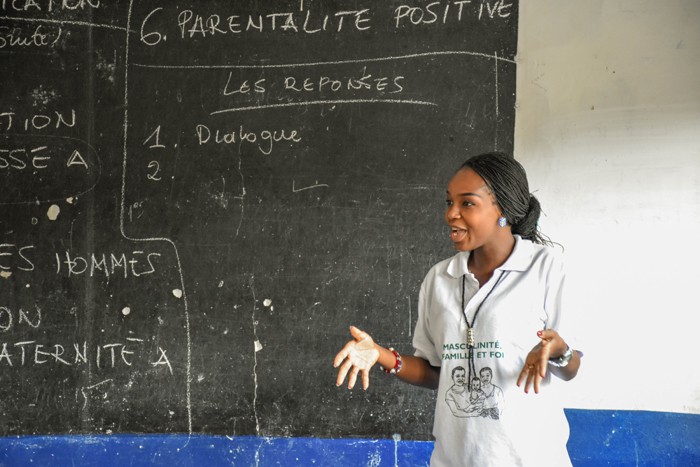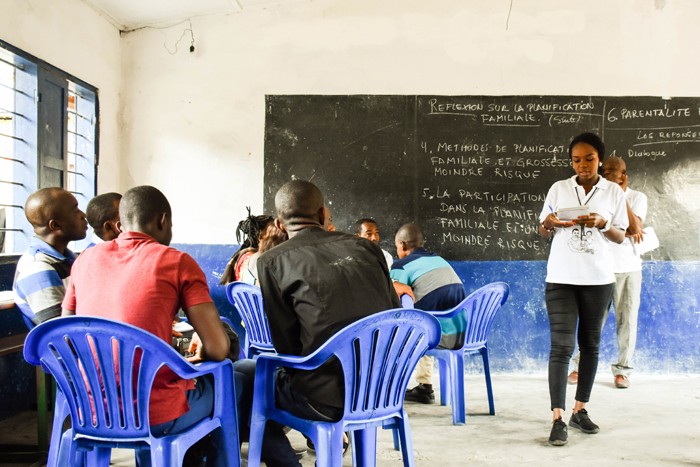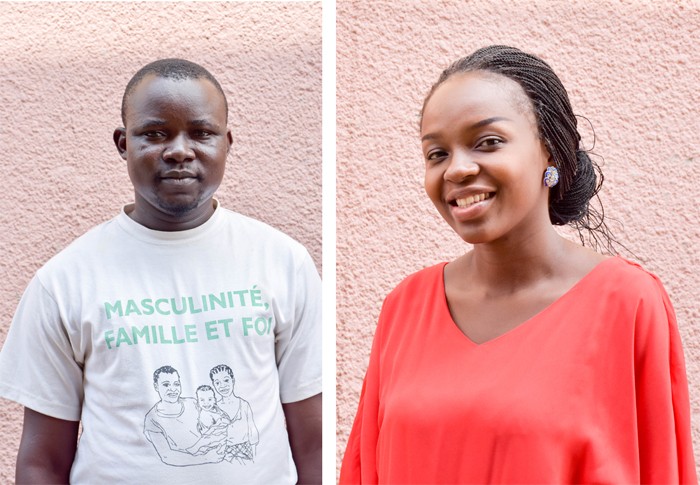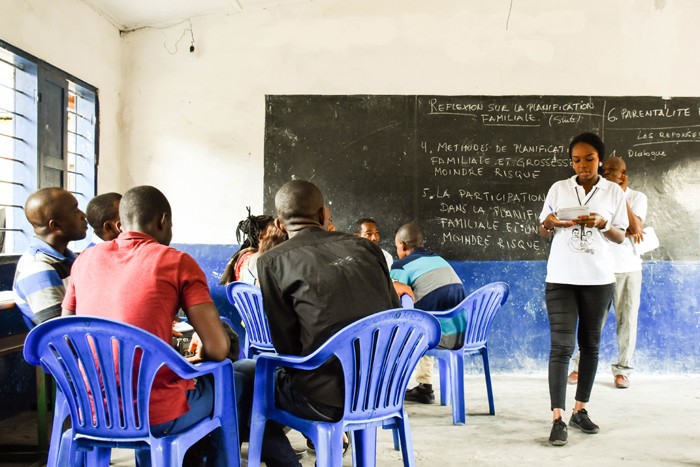- What We Do
- Agriculture and Food Security
- Democracy, Human Rights and Governance
- Economic Growth and Trade
- Education
- Environment and Global Climate Change
- Gender Equality and Women's Empowerment
- Global Health
- Humanitarian Assistance
- Transformation at USAID
- Water and Sanitation
- Working in Crises and Conflict
- U.S. Global Development Lab
Speeches Shim
“Gender Champions” share their journeys to transform gender norms in faith communities

What does gender transformation really look like? In initiatives across the globe, young people are increasingly becoming engaged and empowered to be change agents in their own communities. What does this process look like? How does their transformation affect their lives? Where do they go next?
Jean-Pierre*, a Gender Champion from Kinshasa, Democratic Republic of Congo, explains why he joined the USAID-backed Passages Project.
Passages is a global research project exploring pathways and building evidence on the transformation of social norms for adolescent and youth health and well-being. The Masculinite, Famille et Foi (Masculinity, Family and Faith) activity is working closely with 42 young leaders, and 47 faith leaders, to be voices for change in their communities. Similar activities are taking place in Eastern DRC, Nigeria, Burundi, Central African Republic, Brazil, and Myanmar.

Kinshasa, in the Democratic Republic of Congo, is the largest city in Central Africa. In the heart of the capital, since 2016, a group of young leaders are gathering to reflect on the gender norms in their urban faith communities and their impact on gender equality, gender-based violence, and family planning.
In a city of over 3.7 million regular churchgoers, working with and through faith communities is a great opportunity to see long-lasting and far-reaching change.
With over 3 million Congolese women reporting intimate partner violence, along with low use and limited access to modern voluntary family planning services and methods, these Gender Champions have an opportunity to make a real difference.

These young male and female leaders were inspired to become Gender Champions through workshops, and trained to facilitate small group discussions among other young couples who were newly married or first-time parents. Together, groups unpacked what it means to transform gender norms, exploring power and masculinity, violence against women, and the importance of sharing family planning decisions — all from a faith perspective. Through scriptural reflections, personal sharing, and interactive exercises, the Gender Champions helped couples to value each other and work together in partnership.
Jean-Pierre shared how group trainings helped Gender Champions like them see the multiple aspects of violence — that it can be psychological, emotional, and economic as well as physical — and that the underlying causes of violence against women and girls are tied to the low value and status that women are often given within communities.

Gender Champions were also motivated to spread the word about family planning and the importance of improving family health. Claudine*, a fellow Gender Champion, said she was stunned to learn that every two minutes, a woman dies in the world from inadequate maternal health care, and is now on a mission to make sure her friends and neighbors understand the life and death nature of being educated on family planning.
For Jean-Pierre, and his fellow Gender Champions, another area of change has been the sharing of household tasks. Through the training he came to see the contradiction of characterizing women as weak while leaving them to do all the often physical housework. Jean-Pierre shares this with the couples he mentors, as well as his family and neighbors:
“I have become a driving force to convey the project’s message against violence and for family planning,” he said. “I can no longer tolerate seeing a man being violent to a woman, or a boy sitting down idly while a girl prepares the food and I always step in to share my learning.”
Ultimately, the project worked with Gender Champions — and through them many young couples — to consider and embrace equality of men and women, within their faith tradition.
Through group reflective exercises, framed within their own faith worldview, and supported by their faith leaders, these young Gender Champions have been personally impacted to bring about change in their own lives, intimate relationships, and families. They have shared new ways of thinking and being with other young couples, their congregations, and their communities. And now, inspired by their experience, many of the couples who have been mentored by the Gender Champions want to be trained as Gender Champions themselves to reach even more people to see gender transformation throughout this vast city.
* Jean-Pierre and Claudine are not their real names.
About the Authors
Francesca Quirke is the Sexual and Gender-based Violence Interventions Program Manager at Tearfund; Courtney McLarnon-Silk is a Program Officer at Georgetown University; and Ospy Nzigire is the Coordinator for Masculinite, Famille et Foi, Eglise de Christ au Congo.

Comment
Make a general inquiry or suggest an improvement.